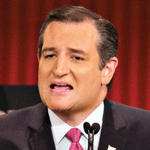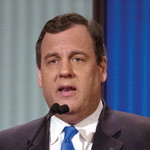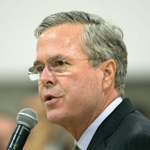How the 2016 presidential candidates stack up with advisers
A look at White House hopefuls' positions on issues impacting financial advice.
The presidential campaign has been underway for nearly a year, and today Iowans will cast the first votes in the contest. Establishment favorites are being upstaged by political novice Donald Trump, who is seeking the Republican nomination, and socialist Bernie Sanders, who hopes to win the Democratic nomination. “There’s such disdain for politics right now, anything can happen,” said Paul Auslander, director of financial planning at ProVise Management Group. “People are willing to take a chance on the unknown.” Here’s a look at the major candidates and their positions on issues that could affect investment advice.
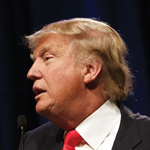
The billionaire real estate developer and reality TV star is channeling the anger and frustration toward political leaders that appear to be coursing through parts of the Republican Party. A bombastic showman, Mr. Trump draws big crowds at campaign rallies but withdraws during debates when the discussion turns to policy. He has called for temporarily banning Muslims from the United States and for building a wall along the Mexican border to keep illegal immigrants out.
Mr. Trump would reduce the current seven tax brackets to four — 0%, 10%, 20% and 25%. Single people earning less than $25,000 and couples making less than $50,000 would pay no income tax. Business taxes would be capped at 15% of their income. He would eliminate the estate tax. He would pay for the plan by “reducing or eliminating most deductions and loopholes available to the very rich,” a campaign document states.
Mr. Trump has not addressed financial regulation in any detail. His campaign did not respond to a request for comment on the Labor Department rule that would raise investment advice standards for retirement accounts. But at a campaign event in December, Trump did say Environmental Protection Agency regulations make it difficult for him to wash his hair.
“He is a tough, good businessman, not a politician. Needs a solid VP to handle him and his mouth though!”
“Politicians have disappointed me. Time for a change. I believe Trump really wants to make America great again.”
“Our economy and tax structure will not be improved until we have a successful straightforward businessman sitting in the White House.”
“Because he can make things happen….he is not beholden to past promises or someone else’s money or agenda.”
“Not a Washington insider. Reagan-like in his approach to domestic and foreign policy.”

The former Secretary of State, New York senator and First Lady is not having the smooth journey to the Democratic presidential nomination that many anticipated she would when she announced her candidacy last April. Still the prohibitive favorite to win the contest, Ms. Clinton is facing strong opposition from Vermont Sen. Bernie Sanders and has had to contend with liberals who want her to run farther to the left. An ongoing FBI investigation of her use of a private email server while heading the State Department hangs over her campaign. Nevertheless, the bitter fight on the Republican side — and the prospect of Mr. Trump or Mr. Cruz winning the GOP nod — bolsters her chance of taking the White House in November.
Ms. Clinton has proposed a two-tier capital gains tax with six different levels that she says will promote long-term investment. She also has called for a 4% surcharge on people making more than $5 million annually.
Ms. Clinton has done something that few presidential candidates ever do — elevated an issue that directly affects financial advisers. She has called on Congress to defeat an effort to scuttle a Labor Department rule that would raise investment advice standards for retirement accounts. The DOL rule is “designed to protect hard-working families’ retirement savings,” she said in a statement.
“Rational, believes in science, has a thorough command of the major issues and extensive international experience.”
“She is the most experienced candidate of the bunch. She is smart, dedicated, knowledgeable. And it’s time for a woman president.”
“Not a big Hillary fan, but none of the Republican candidates are worthy presidential material.”
“I believe that she is the most moderate of the candidates with any chance to actually win. We need moderation.”
“She is the most in-touch candidate with what’s going in the real world.”
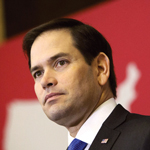
A first-term Republican senator eager to leave the chamber for a promotion to the White House, Mr. Rubio is selling his youthful appearance to voters and projecting himself as a conduit for generational change. A former speaker of the Florida House, Mr. Rubio is trying to position himself as the candidate who can appeal to the disgruntled voters backing Mr. Trump and Mr. Cruz while also being acceptable to the GOP establishment. He won his Senate seat with the support of the Tea Party as well as former Florida Gov. Jeb Bush, who is now a rival for the presidential nomination.
Mr. Rubio would reduce tax brackets from seven to three — 15%, 25% and 35%. He would eliminate all itemized deductions while maintaining tax breaks for charitable contributions and mortgage interest. He would replace the standard deduction with a refundable personal tax credit. Business taxes would drop from 35% to 25%, and Mr. Rubio would eliminate capital gains, dividend and estate taxes.
He would place a cap on regulations by requiring agencies to eliminate a dollar from existing regulations for each dollar in new oversight they propose.Entitlements. Mr. Rubio would increase the retirement age and reduce benefit growth for wealthy seniors. He would change Medicare to a “premium-support system.”
“I like the life story, his potential ability to unite across racial lines, and his conservative governing philosophies.”
“He is the least crazy of the bunch and most electable.”
“He is the least scary in my opinion.”
“He should have the broadest appeal in the general election of all Republican candidates, and could, hopefully, beat Ms. Clinton.”
“Fresh new voice; vision for the future; not part of ‘old’ establishment; does not have a ‘silver spoon’ so is in touch with middle America.”
Another first-term Republican senator, Mr. Cruz is a favorite among Tea Party members and intensely unpopular in the Senate GOP caucus. He often attacks fellow Republicans as being part of the “Washington Cartel” — especially those in leadership who don’t support his scorched-earth approach, which once led to a government shutdown over an attempt to repeal health care reform. Mr. Cruz is competing with Mr. Trump for the support of the Republican Party’s most disaffected voters.
Mr. Cruz is promoting a flat tax that he says could be filled out on a postcard. He would pare the current seven tax rates down to one, a 10% levy that begins after the first $36,000 in income for a family of four. He would eliminate estate and alternative minimum taxes as well as payroll taxes. He would impose a 16% business flat tax based on revenues minus expenses. He also plans to abolish the IRS. Opponents say Mr. Cruz is essentially backing a value-added tax.
Mr. Cruz backs legislation to require congressional approval of major regulations. The DOL fiduciary duty rule would not survive such a gauntlet. He also wants to eliminate 25 federal bureaus and programs.
“He stands for conservative values, believes in capitalism, has strong Christian values and will enforce the Constitution.”
“Clearest vision of the laws our country was built upon and can articulate to citizens.”
“Very smart and principled man who is more concerned with having the right policies than for politics or political correctness.”
“Ted Cruz is the most conservative and intelligent of the candidates, in my opinion.”
“I believe he has a grasp of the key issues affecting the future of our country and the vision to redirect our government”

The Republican Ohio governor has the most experience in elected office of any of the candidates. He served in the Ohio legislature and then in the U.S. House for 18 years before he was elected governor in 2010. Re-elected in 2014, he has an approval rating of about 60%. In Congress, he served as chairman of the House Budget Committee, where he was one of the leading advocates of reducing the deficit, something he is emphasizing in his campaign. Several recent polls have put him in second place in New Hampshire, where he hopes to emerge as the GOP establishment’s alternative to Mr. Trump and Mr. Cruz.
Like several other candidates, Mr. Kasich would reduce the current seven tax brackets to three and cut the top rate to 28%. He would reduce the long-term capital gains rate to 15% and eliminate the estate tax, while cutting the corporate tax from 35% to 25%.
He would impose a one-year freeze on major new regulations and strengthen cost-benefit analyses of rules.
Mr. Kasich has pledged to “work with Congress to put Washington on the path to a balanced budget within eight years, by reducing spending, reforming entitlements and encouraging economic growth,” his website states. He would return major federal responsibilities to the state and local level.
“Most reasonable of the bunch — fiscally conservative and socially liberal.”
“Success and experience as both a govenor and congressman, holds conservative values.”
“He is qualified and not a clown!”
“Moderate, experienced, not too old, not too young. Would probably win his home state of Ohio, which is a swing state.”
“Reasonable balance of principles and pragmatism. I believe he can work effectively with the legislative branch.”




